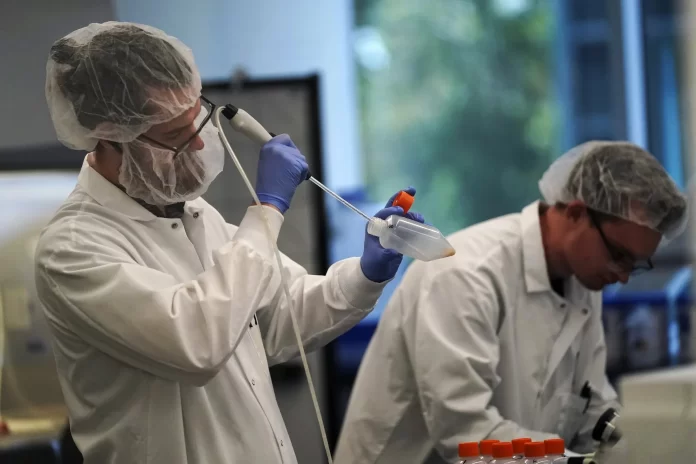CAMBRIDGE, MA — In what’s being called the worst scientific breakthrough of 2024, researchers at the Future Foods Institute accidentally created a brussels sprout variant that perfectly replicates the taste of bacon, threatening to destroy billions in meat industry revenue and forcing the team to issue a formal apology to Big Meat executives.
“We are deeply sorry for this unfortunate discovery,” said lead researcher Dr. Sarah Chen, visibly distressed while destroying laboratory samples. “Our intention was to create overpriced lab-grown bacon that would take decades to become commercially viable. Instead, we’ve created this monstrosity that anyone can grow in their backyard for pennies.”
The catastrophic breakthrough occurred when research assistant Tom Williams carelessly left his lunch too close to the stem cell cultures. The resulting cross-contamination created what scientists are calling “brusselcon,” a vegetable that has sent shockwaves through the agricultural-industrial complex.
“The moment I bit into it, I knew we’d made a terrible mistake,” said Williams, now in hiding after receiving numerous strongly-worded letters from the National Pork Producers Council. “It had that perfect, smoky bacon flavor. Worse yet, it was actually healthy. I immediately tried to forget the taste, but it was too late.”
News of the discovery sent meat industry stocks plummeting, with share prices falling faster than a hot dog at a vegetarian convention. Emergency meetings were held across the country as meat industry executives attempted to contain the crisis.
“This is a direct attack on American values,” declared meat industry spokesperson Richard “Dick” Hamberton, while stress-eating a bacon cheeseburger. “These scientists were supposed to be developing lab-grown meat that would cost $500 per slice and taste vaguely of disappointment. Instead, they’ve created an affordable, sustainable alternative that could destroy everything we hold dear.”
In response to the crisis, lobbyists are working overtime to have brussels sprouts officially classified as “meat imposters” and requiring warning labels stating “This vegetable may cause sudden loss of interest in bacon.” Meanwhile, underground brussels sprout trading networks have emerged, with gardening enthusiasts sharing seeds in shadowy farmer’s market back alleys.
The scientific community has responded with suspicious enthusiasm, with multiple labs reporting similar “accidental” discoveries. Dr. Emily Rodriguez of the Boston Institute of Food Research was caught deliberately sneezing on carrots in hopes of creating chicken-flavored root vegetables. “It was for science,” she insisted while being escorted from the premises.
The breakthrough has created an existential crisis among vegetarians, who are struggling with the moral implications of eating plants that taste like meat. Local vegetarian support group leader Maya Greenfield admitted, “We’re not sure if eating brusselcon counts as cheating. The philosophical debate has torn our community apart.”
As of press time, Dr. Chen and her team have been reassigned to develop a $200 million lab-grown lettuce project, which executives hope will pose no threat to existing agricultural interests. The remaining brusselcon samples have been sealed in a vault, alongside other dangerous discoveries like zero-calorie cheese and self-seasoning potatoes.
When reached for comment, an anonymous meat industry executive simply stated, “Some vegetables should remain vegetables. This is against nature,” before returning to his third bacon-wrapped bacon of the day.
Meanwhile, home gardeners report their brussels sprout plants are now under 24-hour surveillance by suspicious men in dark suits carrying meat thermometers.


